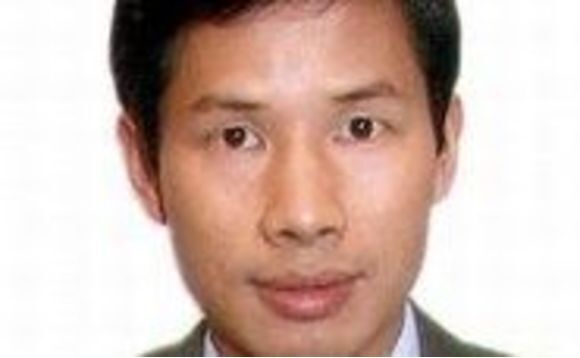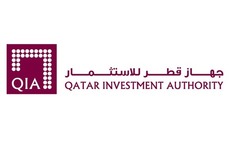
Hu move highlights Goldman's role

The news that Dr Fred Hu, Managing Director and Chairman of Greater China at Goldman Sachs, is retiring from the star investment bank after only two years in his current role, reportedly with plans to launch his own private equity fund, underlines the contribution that Goldman has made in fostering some of the most significant private equity talent across the region.
It also spotlights Goldman's own role as a direct investor in its own right, and as a sponsor of some of the largest and most significant recent funds in Asia Pacific.
Hu's exit and the precedents
Hu, 46, had already announced his retirement from Goldman after 13 years with the bank, commencing with his 1997 appointment as chief Greater China economist, making him one of its longest-serving China executives. He will ostensibly continue as an advisory director at Goldman, which has also been cited as a probable LP in his new fund, alongside Singapore SWF Temasek Holdings and a China Construction Bank investment division.
If correct, these reports would suggest a prospective LP base for Hu's new fund with strong similarities to Hopu Investment Management, the pan-Asian private equity firm formed by his former colleague and fellow rainmaker Fang Fenglei, ex-chairman of Goldman Sachs Gaohua Securities, who raised $2.5 billion for his Hopu USD Master Fund I.
Industry feedback certainly suggests that Hu has been looking at this opportunity for some time, and positioning himself for the move. As to the likely size of the fund, AVCJ sources advised at least $1 billion. Hu's own investment track record at Goldman includes the 2006 $3.78 billion investment in Industrial and Commercial Bank of China, part of which was exited last year for almost $1.9 billion.
Hu's move also recalls the departure of former GS partner and key man in its special situations practice, Mark McGoldrick, otherwise known as "Goldfinger," who left in January 2007 and subsequently formed his own multistrategy alternative investment firm, Mount Kellett Capital, named after a mountain in Hong Kong and with a strong Asia Pacific tilt. Mount Kellett closed its first fund in June 2009 at around $2.5 billion, much of it from the Goldman Sachs Partners Fund and Goldman Sachs Asset Management.
Ironically, Hu's lack of track record as an independent GP may actually help him in the current fundraising market. Established GPs, Fadely notes, that invested over the past few years are now hostage to the performance cycle of private equity in the boom/bust 2007-09 period, while those like Hu who have a pure track record of investments may be received more favorably by LPs. "In a sense, their lack of experience having sponsored funds will allow them to come out and sponsor," notes John Fadely, leading fundraising counsel at Clifford Chance in Hong Kong. "The next group of funds will be from people like that."
And if Hu is on track to launch his own firm, this will be one more indicator of Goldman's significance as a top talent school for private equity. "Goldman Sachs has been a stand-out training ground and producer of private equity GPs," notes Laure Wang, Co-Founder and Managing Director of leading independent fund-of-funds Asia Alternatives, and herself a Goldman alum. "The quality and quantity of Goldman Sachs alumni in the Asia private equity landscape is unparalleled … When you look at the heads of the leading private equity firm across Asia, chances they are Goldman Sachs alums."
Goldman's early private equity record
Part of the reason for Goldman's role as a nursery for regional private equity talent is its own track record as an early and consistent direct investor in Asia Pacific. Former Goldman sources point out that Goldman has been very focused on private equity and principal investing historically, and the discipline was considered as a very integral part of the whole operation. Across various divisions, the firm has kept awareness of principal opportunities high, sources advise.
Furthermore, Goldman was very active and ambitious in Asia from the start. "In particular, the group where I had worked, PIA or the Principal Investment Area, has been one of the longest standing investors in private equity in Asia, starting from the early 1990s and still one of the most active investors today," says Wang. "At that time, private equity was still in its early days and the community of investors fairly small. Goldman has always remained committed to the region through various downturns, especially in its buy-side investment businesses which have fostered individuals and teams that know how to invest through cycles."
Goldman's approach to its work may have played a part. Sources cite "a general care about the quality of the work," with a way of doing business that is "relationship-driven, reputationally sensitive, and prizing rigorous execution."
Other ex-Goldman sources point to a track record of at least 18 years, sustained while other banks shifted in and out of regional private equity investing, losing key professionals in the process. Goldman's own partnership culture may have been central to this. Goldman, one alum notes, was one of the last old-style Wall Street partnerships to go public, and the partnership culture has stayed with the bank ever since. And private equity, the source adds, is all about partnerships – both within firms, and between GPs and investee management.
The Goldman culture of success
Exactly what the ingredients are for Goldman Sachs' ability to attract and retain top talent are the subject of much discussion, but one key element that AVCJ sources emphasize is the ability to retain top talent, often with big egos, within a genuinely team-oriented partnership culture. Goldman, they stress, is one of the few firms, and possibly the only one, able to do this.
"Goldman Sachs' culture is very strong and is driven by a well-oiled self selection process when bringing in new hires and reinforcing that culture through values that emphasize teamwork," remarks Wang. "With high performance and outstanding individuals that build strong relationships in a culture of teamwork, the bonds and network are invaluable."
Another Goldman alum points to the group's frequent appointment of co-heads as an indicator of this. Nowhere else, the source emphasizes, has the co-head structure worked within a major investment banking group.
Another of AVCJ's sources points to the carefully-conducted Goldman practice of internal peer review, particularly when new candidates for partnership status are evaluated. This process, the source notes, tends to spot and weed out any predilections towards playing internal politics or putting personal interests above group goals.
And the Goldman network can be a self-reinforcing source of strength. As one alum puts it, "alumni seek alumni." Fang Fenglei's formation of Hopu with the help of his former Goldman colleague Richard Ong is a classic instance of this.
Does Goldman equal gold?
The bottom line for investors into funds steered by Goldman alums, though, is: does the Goldman name really guarantee outperforming returns? Does it signal a top-quartile or top-decile player? Or is the Goldman epithet simply a badge of quality to reassure LPs – many of them new either to the region or the asset class – that some of the old Goldman magic has carried over into the new vehicle.
AVCJ sources have repeatedly questioned the credentials of GPs from a banking background – even Goldman – as private equity investors. As Asia Pacific private equity matures, they say, ex-bankers are likely to be eclipsed by former operational business executives as GPs. Also, some of the region's best-regarded independent funds are clearly *not* staffed by Goldman alumni, who in many cases have become figureheads for regional branches of global firms.
Goldman graduates, however, have their own points to make on the impact that a Goldman pedigree can have on bottom-line performance. "As a GP, it gives you a great access to a network of potential co-investors, deal sourcing, financing and exits – hiring GS again for the IPO or M&A advisory," notes Wang. "As an LP, it can give you the access, common reference point and knowledge of the majority of GPs that are active in Asia across the region … Where information asymmetry and good relationships can generate outsized returns within Asia private equity, having the advantages of the Goldman Sachs network can produce real alpha."
Investment outsourcing?
Whatever Goldman's achievement in fostering strong direct investment talent, though, more than a few commentators have remarked that it has had trouble keeping them, with the recent series of senior departures from the firm: Fang, McGoldrick, and now Hu.
Ironically, Goldman retains an arms-length relationship with these departees as investors in their funds. As noted, Mount Kellett was supported by Goldman Sachs Partners Fund and Goldman Sachs Asset Management, as well as smaller institutions – chiefly endowments, and – Middle Eastern SWFs. Hopu is similarly backed by Goldman as a cornerstone investor, and signs are that Hu's fund, if launched, will also be seeded by Goldman.
This relatively friendly relationship, AVCJ sources agree, may indicate Goldman's realistic assessment that it has to let some of its star players enjoy the benefits of the private equity compensation structure, while still trying to reap a share of the results. At least on this basis, Goldman can recoup somewhat via the extra entrepreneurial zeal unleashed when a deal-maker becomes an independent GP.
At the height of his Goldman tenure in 2005, for instance, McGoldrick reportedly oversaw some $24 billion of proprietary investments, earning some $70 million annually, more than CEO Lloyd Blankfein's $53 million. Apparently, he still sought more, arguing that his team's contribution to Goldman's overall profits justified greater rewards. Private equity at least can deliver compensation on that level, for the right players.
Latest News
Asian GPs slow implementation of ESG policies - survey
Asia-based private equity firms are assigning more dedicated resources to environment, social, and governance (ESG) programmes, but policy changes have slowed in the past 12 months, in part due to concerns raised internally and by LPs, according to a...
Singapore fintech start-up LXA gets $10m seed round
New Enterprise Associates (NEA) has led a USD 10m seed round for Singapore’s LXA, a financial technology start-up launched by a former Asia senior executive at The Blackstone Group.
India's InCred announces $60m round, claims unicorn status
Indian non-bank lender InCred Financial Services said it has received INR 5bn (USD 60m) at a valuation of at least USD 1bn from unnamed investors including “a global private equity fund.”
Insight leads $50m round for Australia's Roller
Insight Partners has led a USD 50m round for Australia’s Roller, a venue management software provider specializing in family fun parks.







